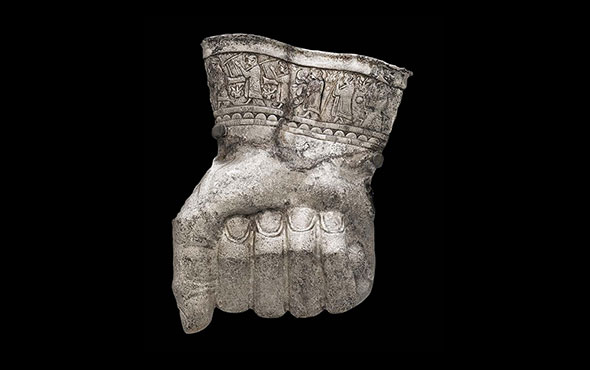PERTH, AUSTRALIA—Science News reports that an analysis of the genomes of more than 1,600 Europeans and western Asians by evolutionary biologist Morten Allentoft of Curtin University and his colleagues suggests that Yamnaya herders originated with hunter-gatherers who lived near western Russia’s Don River some 7,300 years ago. Yamnaya people then migrated from southwest Asia and mixed with populations in Eastern Europe before moving into Northern Europe, where they again produced a hybrid population. Computational biologist William Barrie of the University of Cambridge then compared ancient Eurasian DNA to a database of DNA from more than 400,000 modern British individuals, and determined that a specific gene change now linked to a higher risk for multiple sclerosis, or MS, developed in Yamnaya herders some 5,000 years ago. These gene variants, which perhaps boosted Yamnaya herders’ immune defenses against diseases carried by their livestock, were therefore introduced into northern European populations. How genes, environmental factors, and viruses bring about the disease is not well understood, but today’s northwestern Europeans are diagnosed with MS at about twice the rate of southern Europeans. “This is the first evidence of this [evolutionary process] in an autoimmune disorder,” Barrie explained. Read the original scholarly article about this research in Nature. For more on the Yamnaya, go to "Around the World: Bulgaria."
Genetic Study Offers Hint to the Origin of an Autoimmune Disorder
News January 11, 2024
Recommended Articles
Artifacts January/February 2020
Bronze and Iron Age Drinking Vessels

Digs & Discoveries September/October 2017
Fast Food
Features January/February 2017
Fire in the Fens
A short-lived settlement provides an unparalleled view of Bronze Age life in eastern England

Digs & Discoveries March/April 2016
Minding the Beeswax

-
Features November/December 2023
Assyrian Women of Letters
4,000-year-old cuneiform tablets illuminate the personal lives of Mesopotamian businesswomen
 (Attraction Art/Adobe Stock)
(Attraction Art/Adobe Stock) -
Letter from El Salvador November/December 2023
Uneasy Allies
Archaeologists discover a long-forgotten capital where Indigenous peoples and Spanish colonists arrived at a fraught coexistence
 (Courtesy Roger Atwood)
(Courtesy Roger Atwood) -
Artifacts November/December 2023
Sculpture of a Fist
 (Museum of Fine Arts, Boston/Bridgeman Art Library)
(Museum of Fine Arts, Boston/Bridgeman Art Library) -
Digs & Discoveries November/December 2023
The Benin Bronzes’ Secret Ingredient



